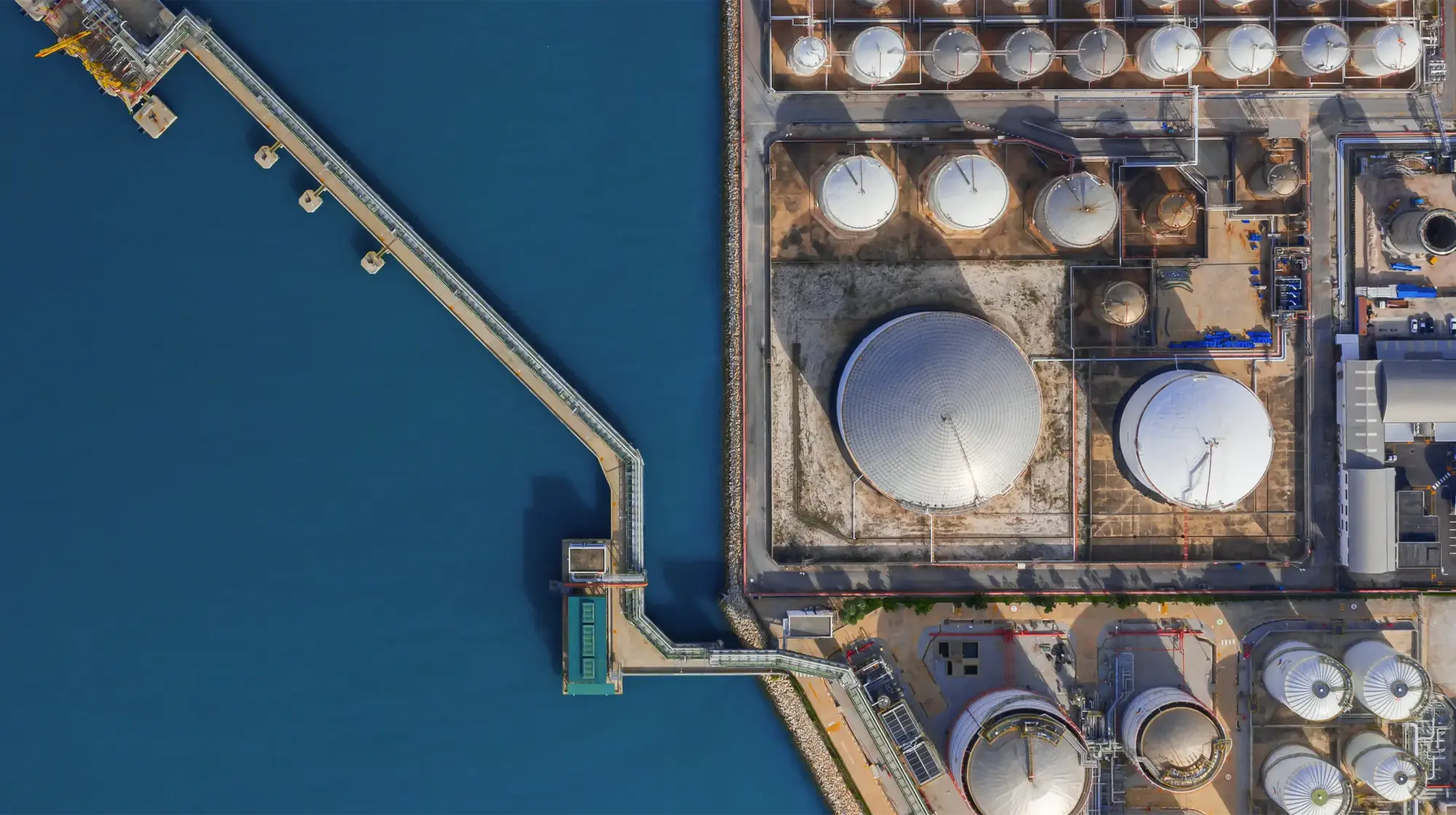Reports related to this article:
Project(s): View 3 related projects in PECWeb
Plant(s): View 2 related plants in PECWeb
Released August 19, 2019 | GALWAY, IRELAND
en
Written by Martin Lynch, European News Editor for Industrial Info (Galway, Ireland)--The European Commission has approved state aid in Croatia for the construction of a liquefied natural gas (LNG) terminal at Krk island.
The Commission's competition commissioner agreed that the Croatia government's plans to invest 100 million euro ($112 million) to support the 250 million-euro ($280 million) project were in line with European Union (EU) State aid rules.
Commissioner Margrethe Vestager, in charge of competition policy, said: "The new LNG terminal in Croatia will increase the security of energy supply and enhance competition, for the benefit of citizens in the region. We have approved the support measures to be granted by Croatia because they are limited to what is necessary to make the project happen and in line with our State aid rules."
Industrial Info is tracking all of the key elements of the project to construct a floating LNG terminal, including a floating storage and regasification unit (FSRU), regasification and storage tanks, jetty and marine offloading facilities and the connections to the national gas transmission network. The LNG terminal is designed to transport up to 2.6 billion cubic metres per year (bcm/y) of natural gas into Croatia national transmission network from 2021. The project has been one of the European Projects of Common Interest since 2013, classed as having "strategic importance for the diversification of natural gas supplies into Central and South-Eastern Europe." Many of the countries in the region are totally dependent on Russian oil and gas, something Europe is determined to change by investing in projects designed to reduce all of the EU's dependence on Russian imports.
The European Commission, via the Connecting Europe Facility (CEF), is supplying 101.4 million ($114 million) for the project, with the rest coming from the owners of the project via the joint venture company LNG Croatia.
Nearby Hungary announced in April that it wants to buy a 25% stake in the Krk terminal. Hungary's Minister of Foreign Affairs and Trade Peter Szijjarto said at the time: "It is a critical issue for the Central European region whether it will be capable of diversifying its gas procurement sources. Several scenarios exist for this, one of which is the construction of a terminal capable of receiving liquid natural gas on the Croatian coast. It is also in Hungary's strategic interests for the terminal to be constructed and offer the country a gas procurement source at a competitive price."
Industrial Info Resources (IIR), with global headquarters in Sugar Land, Texas, six offices in North America and 12 international offices, is the leading provider of global market intelligence specializing in the industrial process, heavy manufacturing and energy markets. Our European headquarters are located in Galway, Ireland. Follow IIR Europe on: Facebook - Twitter - LinkedIn For more information on our European coverage send inquiries to info@industrialinfo.eu or visit us online at Industrial Info Europe.
The Commission's competition commissioner agreed that the Croatia government's plans to invest 100 million euro ($112 million) to support the 250 million-euro ($280 million) project were in line with European Union (EU) State aid rules.
Commissioner Margrethe Vestager, in charge of competition policy, said: "The new LNG terminal in Croatia will increase the security of energy supply and enhance competition, for the benefit of citizens in the region. We have approved the support measures to be granted by Croatia because they are limited to what is necessary to make the project happen and in line with our State aid rules."
Industrial Info is tracking all of the key elements of the project to construct a floating LNG terminal, including a floating storage and regasification unit (FSRU), regasification and storage tanks, jetty and marine offloading facilities and the connections to the national gas transmission network. The LNG terminal is designed to transport up to 2.6 billion cubic metres per year (bcm/y) of natural gas into Croatia national transmission network from 2021. The project has been one of the European Projects of Common Interest since 2013, classed as having "strategic importance for the diversification of natural gas supplies into Central and South-Eastern Europe." Many of the countries in the region are totally dependent on Russian oil and gas, something Europe is determined to change by investing in projects designed to reduce all of the EU's dependence on Russian imports.
The European Commission, via the Connecting Europe Facility (CEF), is supplying 101.4 million ($114 million) for the project, with the rest coming from the owners of the project via the joint venture company LNG Croatia.
Nearby Hungary announced in April that it wants to buy a 25% stake in the Krk terminal. Hungary's Minister of Foreign Affairs and Trade Peter Szijjarto said at the time: "It is a critical issue for the Central European region whether it will be capable of diversifying its gas procurement sources. Several scenarios exist for this, one of which is the construction of a terminal capable of receiving liquid natural gas on the Croatian coast. It is also in Hungary's strategic interests for the terminal to be constructed and offer the country a gas procurement source at a competitive price."
Industrial Info Resources (IIR), with global headquarters in Sugar Land, Texas, six offices in North America and 12 international offices, is the leading provider of global market intelligence specializing in the industrial process, heavy manufacturing and energy markets. Our European headquarters are located in Galway, Ireland. Follow IIR Europe on: Facebook - Twitter - LinkedIn For more information on our European coverage send inquiries to info@industrialinfo.eu or visit us online at Industrial Info Europe.


